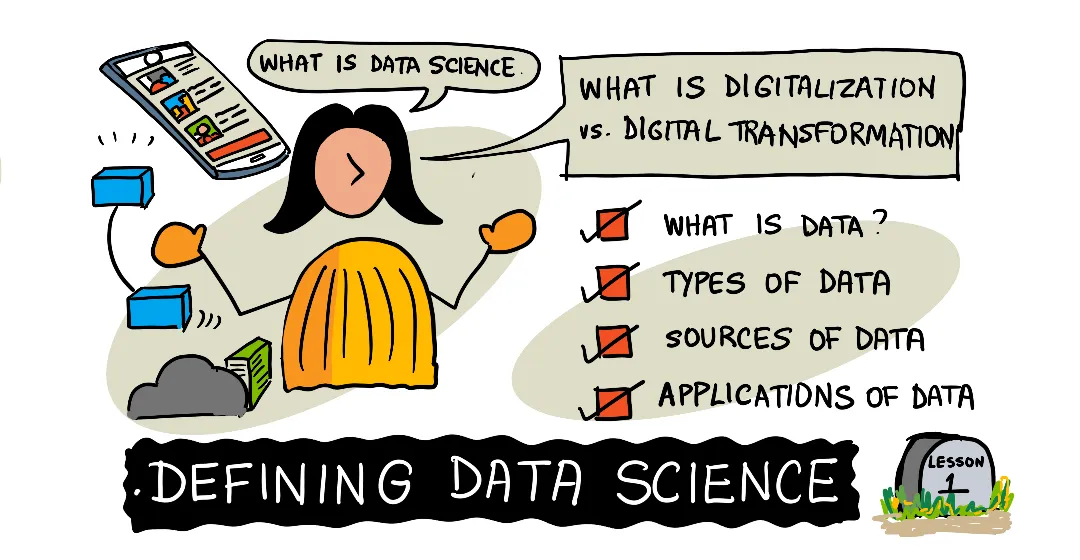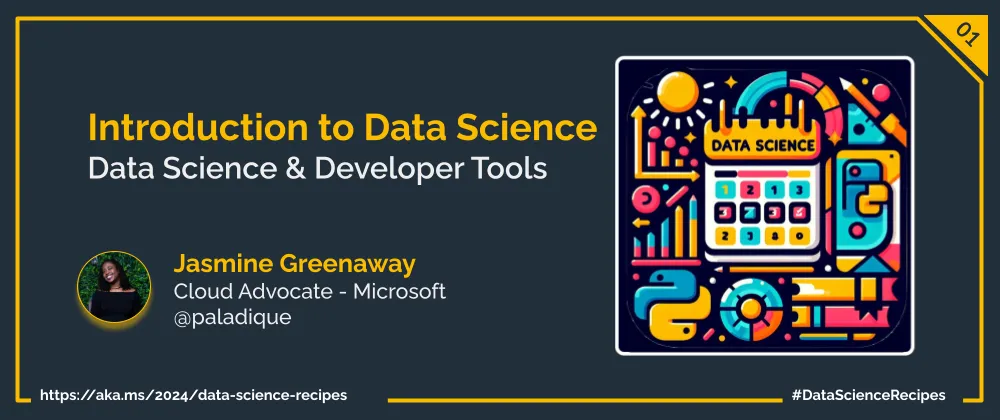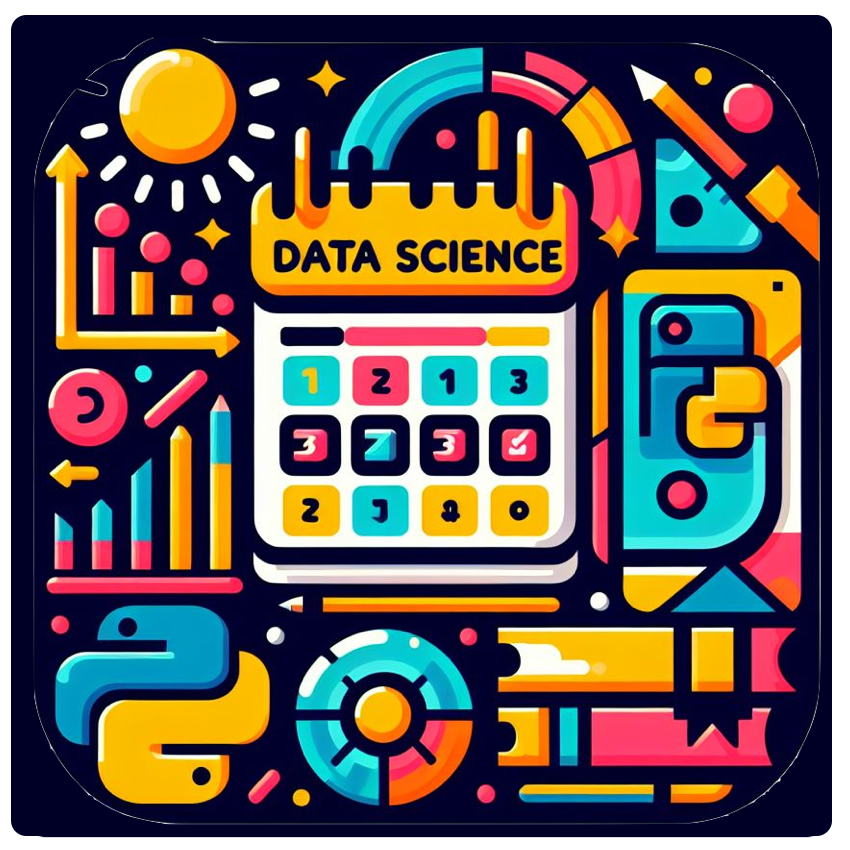1. Introduction to Data Science
Welcome to week Day 01 of Foundations of Data Science Week. Today we’ll dive into the foundations of data science and learn about Data Science day, happening on March 14th.
About Data Science Day
Data Science Day at Microsoft is an online event that celebrates and showcases the use of Python for data science and machine learning. It features speakers from Microsoft and the Python community, who share their insights, best practices, and tips on how to leverage Microsoft tools and services for data science and machine learning.
Data Science Day is free and aimed at anyone who is interested in data science and machine learning, whether they are beginners or experts, hobbyists or professionals, students or researchers. Join us on March 14th 2024!
 |
|---|
| Defining Data Science - Sketchnote by @nitya |
What is Data Science?
Data science is an interdisciplinary field that uses scientific methods, processes, algorithms, and systems to extract knowledge and insights from data of all structures and sizes. Data science can be applied to various domains and problems and involves skills such as statistics, programming, machine learning, data visualization, and communication.
The main goal of data science is to extract knowledge from data, in other words - to understand data, find some hidden relationships and build a model.
How are Data Science and AI related?
Data science and AI often use similar techniques, such as machine learning, natural language processing, and computer vision, to analyze data and make predictions or decisions. However, data science and AI also have different goals and applications.
Data science focuses on understanding data and finding patterns, while AI focuses on creating systems that can act and learn from data.Data science and AI work together by using data as the fuel and the engine for creating intelligent systems. Data science provides the methods and tools to extract insights and knowledge from data, while AI uses these insights and knowledge to perform tasks that require human intelligence.
| Criteria | AI | Data Science | Machine Learning |
|---|---|---|---|
| Focus | Creating systems that can perform tasks that require human intelligence | Extracting insights and knowledge from data | Developing algorithms that can learn from data |
| What is required/What do they use? | Logic and decision trees | Structured and unstructured data | Statistical models |
| What it achieves | An autonomous system that can run without human intervention | A better understanding of data and finding patterns | A prediction or decision based on certain criteria |
| Example of tools | Tensorflow, sci-kit-learn, WEKA | R, Python, Excel | R, Python, Excel, sci-kit-learn |
| Application | Chatbots, self-driving cars, Optical Character Recognition (OCR) | Advertising, marketing, healthcare | Weather prediction, stock market prediction, recommendation systems |
What’s Next?
Tomorrow, you’ll learn about resposible AI and its role in Data Science.
Learn more
- Get started with Data Science in the Data Science for Beginners curricula.
More Data Science at Microsoft
- Check out the Data Science Cloud Skills Challenge if you want to go through some self-paced learning! This challenge is active until April 15th, 2024.
- Join us on Discord at https://aka.ms/python-discord
- Data Scientist Certifications
- Data Scientist Training Path

